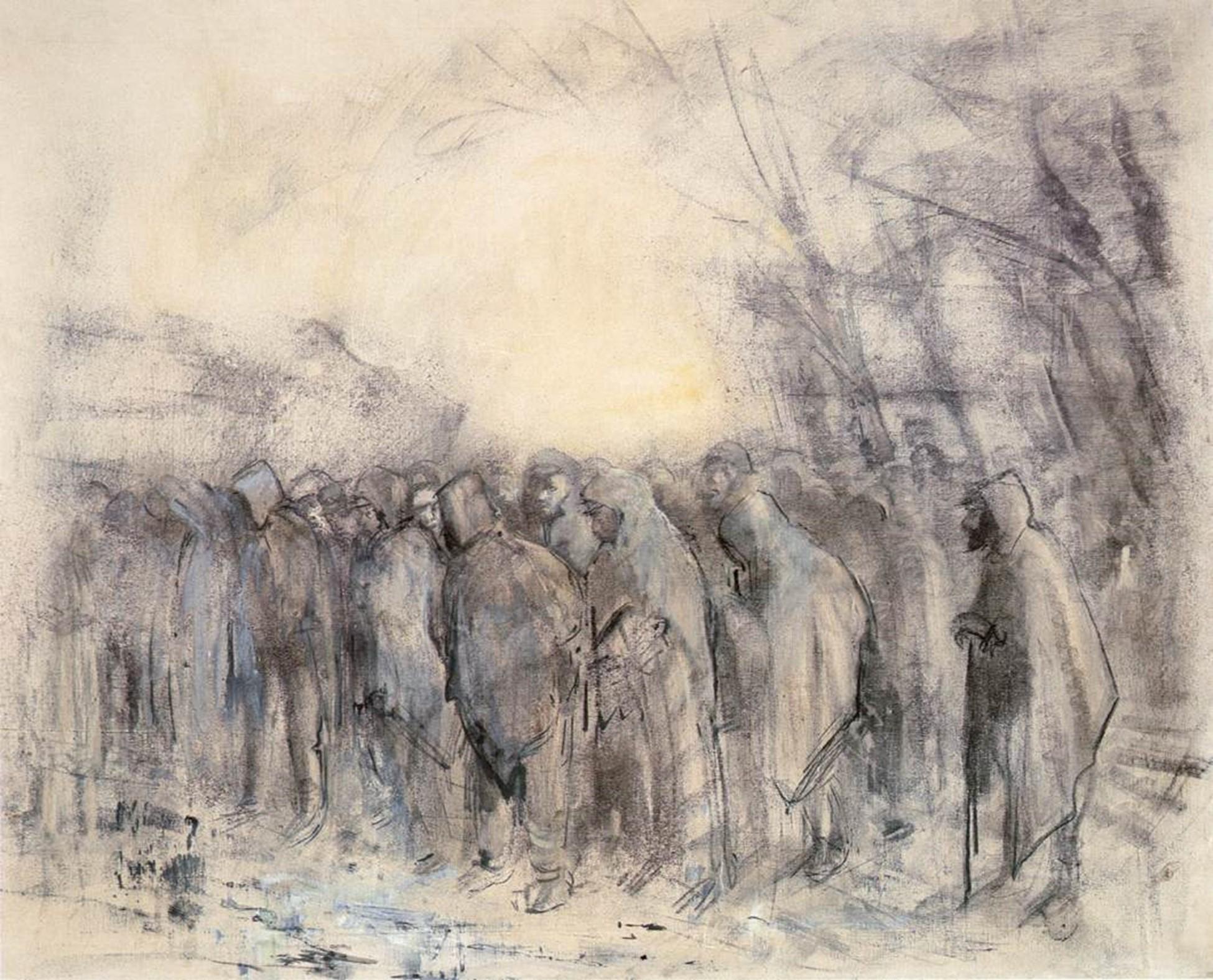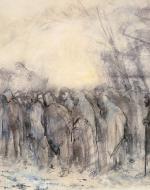Created by Kaitlynn Wolffe on Mon, 05/06/2024 - 10:16
Description:
One of the core themes surrounding death is that of acceptance. One must learn to accept what will always be coming, after all. But this path is almost never an easy one. Depicted above is an expressionist painting of a group of prisoners marching through a forest. They are huddled together in rags and hunched over from injuries. None of them are sure if they will make it “up from the haunts of men to the place where the angels are,” or their final destination (Guest 1). This feeling of unease contrasts with the heavy push to move forward as they continue to march on; this march that all humans must participate – “This is the march of mortality…to a wonderful goal afar” (2). This idea of the “…relentless progression of time and its impact on the human experience” is a common one, seen within many works of literature (Medlin 249). But even so, within each work, a unique perspective is granted through the author’s pen.
One such author is Edgar Albert Guest. Born in the UK, Guest spent most of his life within the US, and was a product of “small town America,” seen throughout his writing style, both poem and prose. One of his works, “The March of Mortality,” suits the emotion of the painting above quite well. Yet, as opposed to the unease and injuries the prisoners are all made to carry as they shuffle onward, Guest depicts humanity as soldiers, who, despite knowing that their march ends with death, head towards it with good feeling: “Troopers we are in life, warring at times with wrong./But promised every unbroken rest at last in a land of song” (5-6). Here, death is not a dreadful end, but a chance at rest, one that so many feel they cannot achieve until that point. The finality of death is instead seen as a chance to get a break from life. But, this still does not mean that death is the end, as Guest writes, “We shall come, in time, to that golden value where never the spirit dies” (8). Death is a resting place, but that does not mean they will die. Rather, it is only a shift in perspective.
Aside from this, Guest also works to incorporate the important idea of the “universal nature of death…and its ability to humble all who come from its path” (Medley 250). The poem describes how, during this march, all must take part, “whatever man’s race or creed,” status of wealth, or otherwise (251). Even the most powerful, or the wealthiest individuals cannot escape the March of Mortality. It is through understanding this that Guest hopes to help people to understand that all people should learn to accept death as a part of life, and instead of spending time fearing it, use this time to cherish the time we have, while also understanding the significant legacy and impact we can leave behind. Even in death, the changes to the world we bring are real and lasting, so live “each day to the fullest, and appreciate the precious gift that is life” (251).
Works Cited
Guest, Edgar Albert. “The March of Mortality.” All Poetry, 1917, https://allpoetry.com/The-March-Of-Mortality.
Mednyanszky, Laszlo. Prisoners Marching Off. 1918. Wikiart.org, https://www.wikiart.org/en/laszlo-mednyanszky/prisoners-marching-off-1918.
Zackary Medlin. “Poetry.” Antipodes, vol. 28, no. 1, 2014, pp. 248–50. JSTOR, https://doi.org/10.13110/antipodes.28.1.0248. Accessed 6 May 2024.


